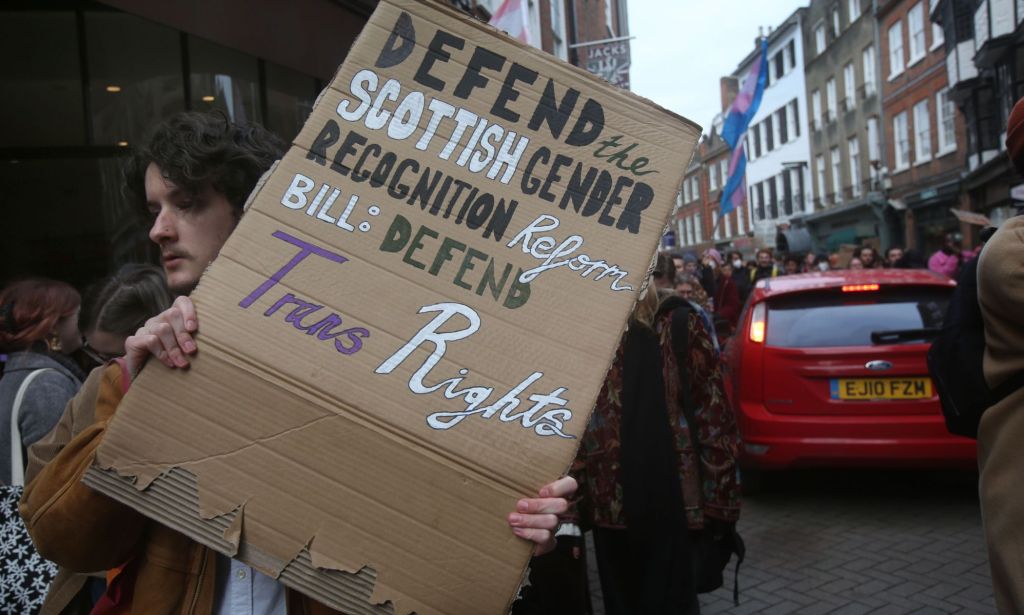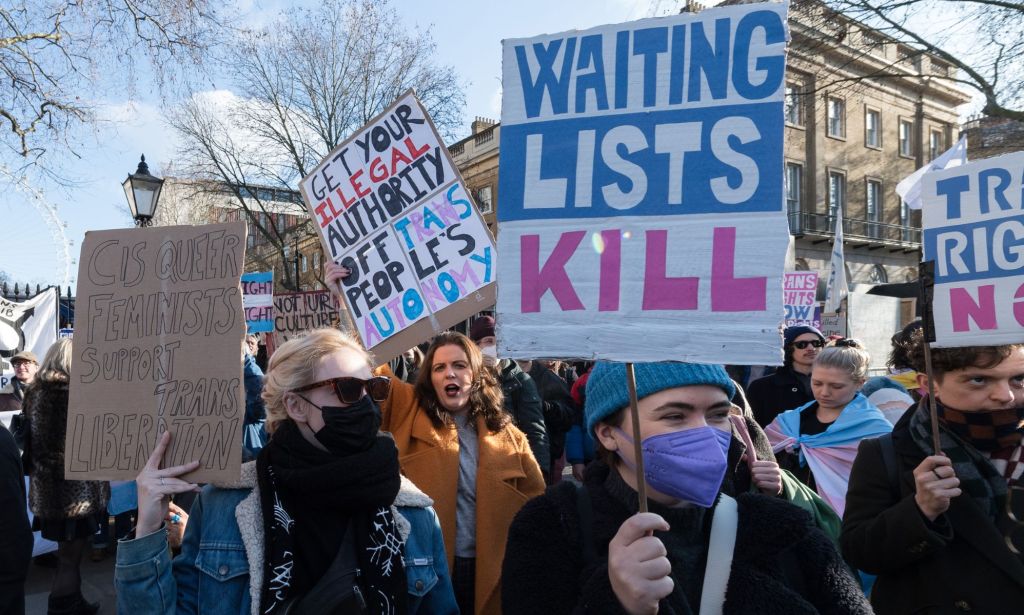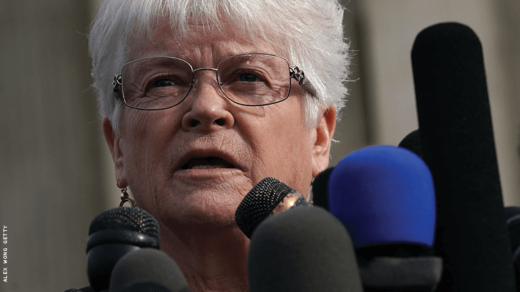Tory crackdown on gender reform suggests government might ‘take away rights altogether’, trans dad fears
Author: Maggie Baska
Journalist and advocate Freddy McConnell thinks UK gender law is weird, outdated and problematic – but fears that the Tories could use any attempted reform to strip trans people of their rights.
Freddy McConnell documented his experience of becoming pregnant and giving birth as a trans man for the BBC, and later fought in the UK Supreme Court for the right to be registered as his child’s “father” or “parent” on their birth certificate.
His case was unsuccessful, but as a result, McConnell is more knowledgeable on the nuances of gender recognition legislation than most.
For the first two years of his transition, McConnell didn’t know what the law said, because “no one explained it to [him]” at the gender identity clinic he went to. That changed when he decided to start a family after starting his medical transition in 2013.
“I decided to get my affairs in order to prepare for a big life change,” he says. “By that point, I’d heard of a GRC [Gender Recognition Certificate]. I naively thought that it would protect my identity as a parent – I obviously know now that’s not true.”
Currently, trans people in the UK can apply for a GRC under the Gender Recognition Act (GRA). They must submit evidence including two separate medical reports, showing a diagnosis of gender dysphoria and details of any gender-affirming treatment or lack thereof. They must also prove, somehow, that they have lived in their affirmed gender for the previous two years.

As well as birth certificates, a GRC allows a trans person’s gender to be recorded on their marriage, civil partnership and death certificates.
It doesn’t, as Freddy discovered, give trans parents the right to be recorded properly on their children’s birth certificates – the parent who gives birth can only be registered as “mother”. Nor does it have anything to do with access to single-sex spaces like bathrooms – trans people have the right to access facilities regardless of whether they have a GRC.
Even when Freddy applied for his GRC, he remembers “still not really knowing much about the process”, to the point that he was surprised when he received a new birth certificate at the end of it.
It open his eyes to how “weird” the gender recognition system is; it was the first time he realised the legislation originally was “designed to make trans people invisible, to make them blend in with cis people, erasing our history and lived realities”.
“I didn’t necessarily want that,” he says. “I think it’s useful to have a new birth certificate. It keeps you safer in certain situations, but I think most trans people nowadays are not interested in erasing their past.”
He finds the GRA “incredibly problematic on that basis”, but think it’s “symptomatic of a bigger problem” around discussions of the lives of trans people in the UK.
“In the NHS systems, I’m listed as male, which is what I want,” he explains. “But it means I don’t get accurate reproductive health advice and I have to jump through tons of hoops to get a cervical screening whenever I’m supposed to get it.’
Anyone with a cervix between ages 25 and 64 is eligible for cervical screening, which includes many trans men and non-binary people. However, historically, trans and non-binary people in the UK face barriers to accessing such crucial healthcare through the NHS.
This includes reminders for screenings not being sent out to some because NHS systems fail to recognise trans masculine or non-binary people with a cervix as well as lack of information or concerns around gender dysphoria in relation to such treatment.
He continues: “You can’t just pretend that trans people are cis. You can’t squeeze us into systems that aren’t designed to cope with us. It’s going to make everything messy and put trans people at risk. Of course, things like this are never mentioned in media coverage because journalists rarely seek out our perspectives.”

McConnell says the GRA was toasted as “pioneering” back in 2004, in comparison to other countries where there are requirements for trans people to be sterilised or undergo other medical treatments if they want to have their gender legally recognised.
He believes it’s now an “outdated piece of legislation”, but that reform carries its own risks.
Theresa May had pledged to remove the medical requirements from the process, to make it easier for trans people to access a GRC. But those plans were abandoned by then-equalities minister Liz Truss, during Boris Johnson’s premiership.
In Scotland, Nicola Sturgeon decided to use devolved powers to enact reforms. But after the Scottish parliament voted through a bill that would have simplified the gender recognition process, the UK government took the unprecedented step of vetoing it.
Now, the topic of gender recognition is being debated in newspapers and on television on an almost daily basis.
It “stresses” Freddy out to think of how this could lead to the Tory government imposing tighter requirements for trans people in the future.
“On one hand, I think the GRA is now a backward and outdated piece of legislation,” McConnell says. “However, given the current government, with its lack of regard for global human rights protections and norms, I’m deeply worried about any attempts to properly update it because of the panic and cynicism we’ve seen whipped up over quite modest reforms.”
He adds: “If enough trans-exclusionary Tory MPs and their Labour allies realise that there is currently no requirement for any medical treatment – even hormonal treatment – in the GRA, they might say, ‘We must ignore 20 years of progress and take their rights away altogether!’”
Actual Story on Pink News
Author: Maggie Baska






